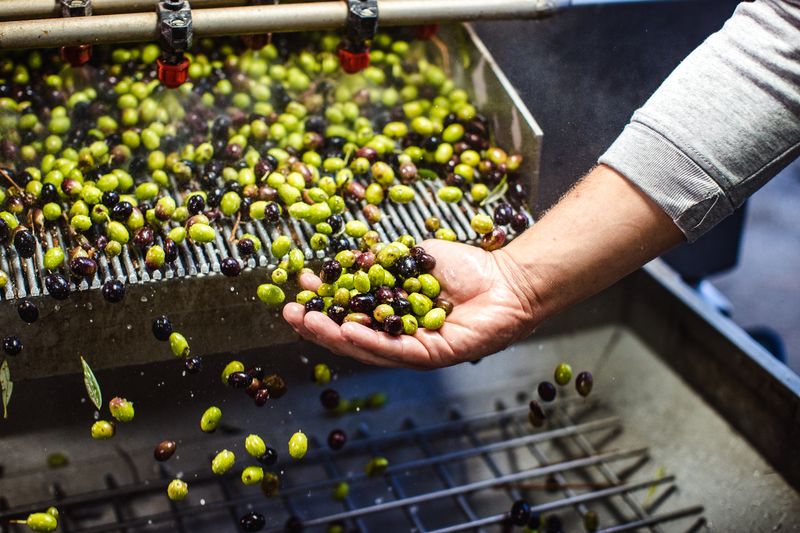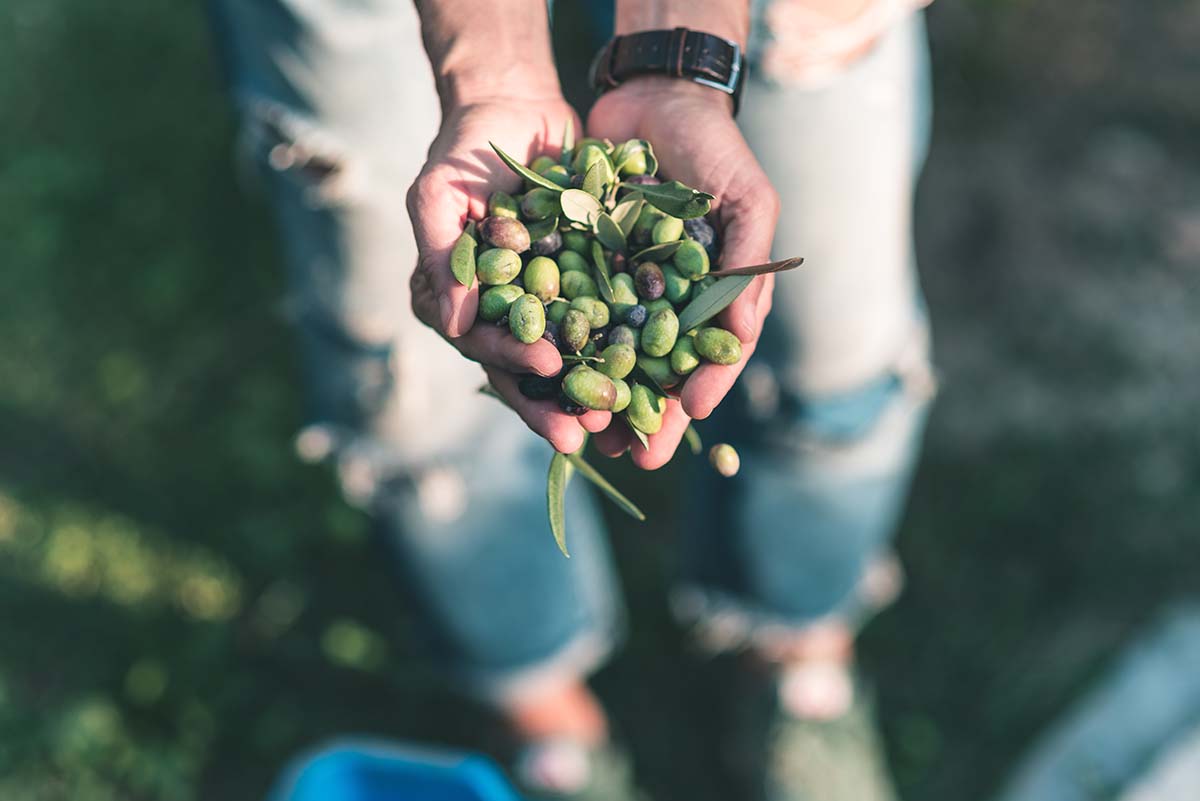The journey from Groove to Table: Extra Virgin Olive Oil Process
Extra virgin olive oil, often touted as the elixir of the Mediterranean, undergoes a meticulous process that transforms olives into a golden, aromatic liquid. The journey from the grove to your table involves several crucial steps that contribute to its rich flavor and numerous health benefits.
Ancient Process of Making Olive Oil
The art of making olive oil dates back centuries, tracing its roots to ancient civilizations that recognized the value of this liquid gold. The process, though simpler in some aspects, laid the foundation for the extraordinary extra virgin olive oil we enjoy today..
The ancient method of olive oil extraction involved stone grinding and pressing. Olives were crushed by large stones, extracting the precious oil through pressure. This traditional approach not only extracted oil but also retained the rich flavors and aromas of the olives. As civilizations advanced, so did olive oil production techniques. Hydraulic presses were introduced, utilizing water-powered mechanisms to extract oil more efficiently. This innovation marked a significant step forward in the evolution of the olive oil-making process.
Legacy of Ancient Olive Oil Making
While contemporary methods have streamlined the olive oil production process, the ancient techniques have left an indelible mark on the industry. The appreciation for artisanal, small-batch olive oils reflects a desire to capture the essence of those ancient traditions in a modern context.
Artisanal, small-batch olive oil producers at GustoGo

Extra Virgin Olive Oil Process
Extra virgin olive oil is not just a cooking ingredient; it's a symbol of tradition, health, and exquisite taste. Understanding the process behind its production sheds light on why this oil is highly prized worldwide.
Harvesting the Olives
The process begins with the careful selection and harvesting of olives. The timing is crucial, as ripe olives contribute to the oil's distinct taste. Farmers must decide between manual and mechanical harvesting, each method influencing the final product.
Transporting to the Mill
Once harvested, the olives need swift transportation to the mill. Delays or mishandling can affect the oil's quality, emphasizing the importance of a seamless transition from grove to mill.
Cleaning and Washing
At the mill, the olives undergo a meticulous cleaning process, removing leaves and other debris. Washing is a critical step to eliminate impurities that could otherwise affect the oil's flavor.
Crushing the Olives
Crushing the olives is a pivotal stage where the fruit is transformed into a paste. The choice of crushing equipment significantly impacts the oil's quality and taste.
Malaxation
Malaxation involves stirring the olive paste, allowing oil droplets to combine. The duration and temperature during this step are carefully controlled to extract the maximum flavor and aroma.
Centrifugation
Centrifugation separates the oil from water and solids. Different types of centrifuges are employed, each contributing to the oil's clarity and purity.
Filtration
The final purification step involves filtration to remove any remaining impurities. This ensures that the extra virgin olive oil reaches consumers in its purest form.
Storage
Proper storage conditions are essential for preserving the oil's freshness. Understanding the ideal containers and environments for storage prevents degradation.
Quality Testing
Quality testing is a rigorous process, with specific parameters determining whether the oil qualifies as extra virgin. Certifications play a vital role in assuring consumers of the oil's authenticity and quality.
Bottling Process
The journey doesn't end with extraction; the bottling process is equally crucial. Sterilizing bottles and following precise filling and sealing procedures ensure the oil remains untainted.
Labeling and Packaging
Regulatory requirements for labeling are essential to provide consumers with accurate information. Additionally, eco-friendly packaging options contribute to sustainable practices in the industry.
A short film by one of our Brands available at GustoGo showcasing Extra Virgin Olive Oil Process Journey!
Cooking with Extra Virgin Olive Oil
The journey from olive groves to the kitchen table involves a meticulous process that defines the quality and taste of extra virgin olive oil. Understanding each step enhances our appreciation for this liquid gold, encouraging us to savor its benefits in both health and culinary delights.
Mastering the art of cooking with extra virgin olive oil opens up a world of culinary possibilities. Whether drizzling it over salads or using it in cooking, the oil elevates dishes with its unique flavor profile.
FAQs
How can I identify genuine extra virgin olive oil?
Look for reputable certifications on the label and buy from trusted sources. At GustoGo we carefully select small olive harvesters and EVO OIL PRODUCERS who follow authentic processes and are owned by major Italian Quality certifications like DOP:
What is the significance of cold-pressing in olive oil production?
Cold-pressing preserves the oil's flavor and nutritional value by avoiding high temperatures.
Can I use extra virgin olive oil for deep frying?
It's not recommended for deep frying due to its lower smoke point; use it for sautéing or drizzling instead.
How long does extra virgin olive oil last after opening the bottle?
It's best consumed within six months to a year for optimal freshness.
What health benefits does extra virgin olive oil offer?
It promotes heart health, has anti-inflammatory properties, and provides a rich source of antioxidants.
6. What is the significance of Hand Harvesting Olives?
Unlike modern machinery, ancient civilizations relied on manual labor for harvesting olives. Skilled workers would carefully hand-pick the olives, ensuring that only the ripest fruit was chosen.

Gusto Go: Your Gateway to Italian Food Brands
Producers and Products at Gusto Go are distinguished by the regional ingredients, traditional recipe, and a commitment to preserving the produce of each season. Our B2B marketplaces cater to businesses of all sizes, chefs & sellers, providing opportunities for growth and collaboration.

